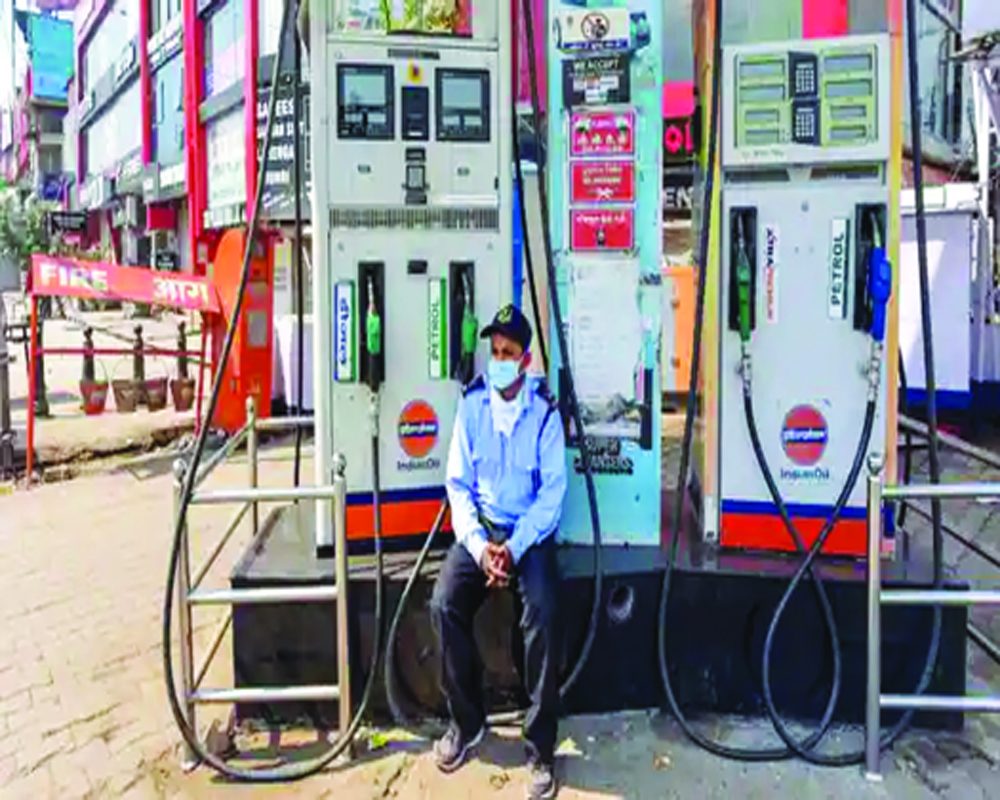For a country like India, the dollar-rupee exchange matters a lot as we pay for imported crude in dollars. This pushes the price up significantly
Finally, the Centre slashed excise duty on petrol and diesel. It is claimed that the reduction has been initiated to help the ‘aam aadmi’. This move will leave a hole of about Rs 60,000-65,000 crore in the government’s tax collection in the remaining months of this fiscal year.
For quite some time, the opposition parties were building up pressure on the government to reduce the tax on petrol/diesel. It is obvious that though the government was not willing to respond for various economic reasons, it was finally pushed to reduce the taxes due to the electoral reverses the ruling party suffered recently.
What are the options available to the Centre as well as State Governments to address the massive revenue gap? One way is to prune their expenditure. As the revenue expenditure cannot be reduced, obviously the capital expenditure will have to be cut. This will affect investments which, in turn, will affect growth and employment opportunities in the country.
Another option is to borrow from the market to offset the loss of revenue. This will push up interest rates in the market and also revenue expenditure of the government. This will also in turn affect investments and growth.
Yet another option will be to compensate the loss of revenue by taxing other items. This means that to help the owners of vehicle, we are going to pass on the burden to other categories.
Before acceding to the expectation of the people, the Government should have tried to explain to the people that the present increase in petrol and diesel is on account of increase of imported crude prices and we import eighty percent of our crude requirement. The recent price increase is not on account of increase in taxes. The Government has failed miserably to explain this. The opposition parties cited the taxes charged by the government as the reason for the increase in retail prices. This is false propaganda by the opposition, which the ruling dispensation has not countered effectively.
When we depend on import of crude for our use, the retail price cannot be controlled beyond a point.
Increase in petrol and diesel prices is not something new. The following analysis of increase during every seven years block will show how the present increase is not something unusual.
Between 1979 and 1986, the price of petrol increased by 110 per cent, 60 per cent in the 1993-2000 period, 70 per cent in the next seven years. During 2014 and 2021, the increase is 30 per cent with the price of petrol at Rs 100 per litre.
Crude price is decided by various factors. There is continuous increase of demand at the international level but the supply is restricted by the producing countries by way of a cartel. This pushes up prices. For a country like India, the dollar-rupee exchange matters a lot as we pay for imported crude in dollars. One dollar was costing around Rs 8.13 in 1979. Now it is around Rs 75 plus. This itself pushed up the price by nearly ten times.
As it is, we do not have any long term policy for pricing petroleum products. Now the Government has responded by reducing the taxes to provide some relief to the common man. If the international crude price further travels north, what is the option open to the government? Can they afford to go on reducing taxes on petrol and diesel? After all the government needs to tax such items that cannot evade taxes and taxing petrol and diesel is the best way. Alternatively, if the international price of crude drops will the government allow such reduction to be passed on to the consumer or will they increase the taxes? It is better to have a long-term policy on these.
Any Government must think of long-term economic prosperity of the country instead of focusing on short-term goals like winning elections. People should be groomed to sacrifice something in the present for better future.
Earlier the Finance Minister expressed her apprehension that if the central government reduces taxes on these products, the state governments may quietly raise their tax kitty and nullify her sacrifice. However, we now see that the state governments ruled by BJP have also slashed their VATs and there is pressure on other state governments to reduce their VATs.
When there is a need to develop green energy by promoting electric vehicles to address the target of zero emission by 2070, encouraging the consumption of petrol and diesel is a retrograde step by the Government.
(The writer is a retired banker. The views expressed are personal.)


























